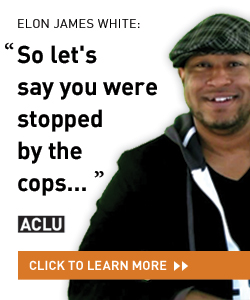Scanning media for great examples of what to do or what not to do, a great blog came across my desk the other day and frankly it was worth a read and then a second read. One of my clients proudly stated at a meeting where I was hired as their keynote speaker, “We don’t hire convicted felons.” Hum…well here’s a link to the original blog – “Does Your Hiring Policy Exclude Ex-Con’s? Watch Out!” Perhaps you, too, will be interested in this eye opening blog post!
 What caught my attention is the content related to new EEOC guidelines regarding the use of criminal background data in employment decisions. This material is important and worth the time to read. It is reprinted in it’s entirety below.
What caught my attention is the content related to new EEOC guidelines regarding the use of criminal background data in employment decisions. This material is important and worth the time to read. It is reprinted in it’s entirety below.
This is a guest post by Joseph H. Harris, Partner, White Harris PLLC.
The United States Equal Employment Opportunity Commission (EEOC) has issued a new set of guidelines concerning the use of criminal background information in employment decisions. The guidelines should serve as a reminder to employers, and their attorneys, that they cannot automatically exclude from consideration all job applicants with criminal records. That includes applicants with felony convictions.
To be clear, the EEOC does not require employers to ignore criminal background information. However, it does restrict the manner in which employers may use that information to exclude an individual from employment. Employers who fail to abide by the EEOC’s new guidelines could find themselves charged with disparate impact discrimination in violation of Title VII of the Civil Rights Act of 1964, even if the policy is applied uniformly to all applicants regardless of their race, age, gender, or other legally protected characteristic. One company recently settled a case with the EEOC for $31 million for its policy which automatically excluded anyone with a criminal record from employment. In addition, in its recently released Draft Strategic Enforcement Plan, the EEOC listed recruiting and hiring discrimination as its top priority.
- Arrests. A prior arrest cannot, in and of itself, serve as the basis for excluding an individual from employment. Under the law, we are presumed innocent until proven guilty. However, employers may consider the underlying facts of the arrest. If those underlying facts bear directly on the job in question, then excluding the individual would be permissible.
- Convictions. Employers may not maintain blanket policies making a prior conviction, even for a felony, the basis for automatically denying employment. Employers may, however, adopt narrowly tailored policies stating that certain specific jobs cannot be held by individuals with criminal convictions for particular offenses. For such a policy to be in keeping with the EEOC’s guidelines, it must be job-related and consistent with business necessity. In other words, there must be a link between the “specific criminal conduct, and its dangers, with the risks inherent in the duties of a particular position.” To meet that standard, employers have two options. They can use empirical data to establish that link (an expensive and time consuming task). Or, they can establish a targeted screen by considering the following three factors: the nature and gravity of the crime that would serve as the basis for exclusion, the amount of time that has passed since the crime was committed or the sentence completed, and the nature of the job at issue. In addition, employers are strongly encouraged to engage in an individualized assessment to determine whether the exclusionary policy should apply. As part of that assessment, the employer should notify the individual that he or she has been excluded because of a criminal conviction and give the individual an opportunity to demonstrate why the exclusionary policy should not apply due to the particular facts and circumstances of the case. The employer should then consider whether the information provided by the excluded person warrants an exception to the policy.
The EEOC has provided the following list of factors that employers should consider to ensure that their exclusionary policy and screening process is consistent with the new guidelines. “The facts or circumstances surrounding the offense or conduct; [t]he number of offenses for which the individual was convicted; [o]lder age at the time of conviction, or release from prison; [e]vidence that the individual performed the same type of work, post conviction, with the same or a different employer, with no known incidents of criminal conduct; [t]he length and consistency of employment history before and after the offense or conduct; [r]ehabilitation efforts, e.g., education/training; [e]mployment or character references and any other information regarding fitness for the particular position; and [w]hether the individual is bonded under a federal, state, or local bonding program.”
A word of caution for employers: It is the EEOC’s position that Title VII preempts state laws that require the automatic exclusion from employment of individuals convicted of certain offenses. This puts employers in a difficult position and may present them with an impossible choice: Abide by state law and exclude an applicant with a criminal record, but face the possibility of EEOC charge for violating federal anti-discrimination laws, or follow the EEOC’s guidelines, hire the individual because the targeted screen and individualized assessment does not warrant an automatic exclusion, and face liability for violating state laws.
About the author: White Harris PLLC practices exclusively in the area of labor and employment law, representing management. The firm counsels businesses on how to comply with local, state, and federal employment laws and represents them in court, before government agencies, and in alternative forums such as arbitration and mediation. For more information, visit http://whiteharrislaw.com.
Mr. Harris is an alumnus of Oxford University and a graduate of Haverford College and the Benjamin N. Cardozo School of Law. He is admitted to practice in the state of New York and in the federal courts in the Southern and Eastern districts of New York. He is a member of the Labor and Employment Law Section of the New York State Bar Association and the Labor and Employment Law Committee of the New York City Bar Association.
WOW…at some level this is a game changer! As a convicted felon, I understand the challenges that many face with seeking employment. I have, in fact, been denied more than one job because of my criminal background (guilty of embezzlement and tax evasion for a crime in 1986/87).
Today I work with multinational companies primarily in ethics and fraud prevention, but it would appear that another prospective challenge might be how firms deal with this EEOC change.
YOUR COMMENTS ARE WELCOME!




 » Button: Get an Image for Your Website or Profile
» Button: Get an Image for Your Website or Profile